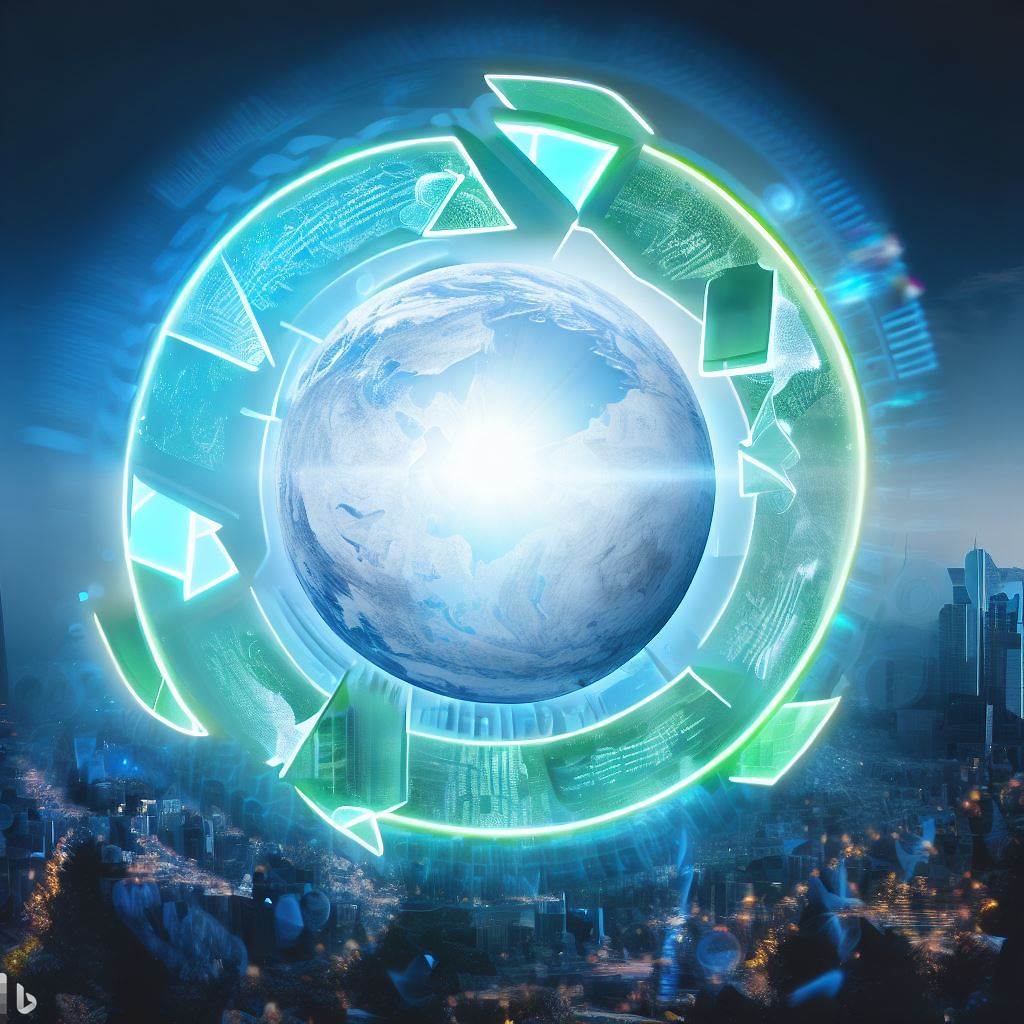
The future of sustainable entrepreneurship: Innovative income models for the circular economy
As the world becomes increasingly aware of the need for sustainable practices, entrepreneurship has emerged as a powerful force for change. Entrepreneurs are developing innovative business models that promote sustainability and reduce waste. One of the most exciting areas of innovation is the circular economy. In this blog post, we will explore the future of sustainable entrepreneurship and the income models that are driving the circular economy.
The circular economy is an economic model that is based on the principles of reducing, reusing, and recycling materials and resources. Circular economy does not rely on the traditional “take-make-waste” linear model, which creates a significant amount of waste and pollution. It seeks to create closed-loop systems that eliminate waste and promote sustainability. In a circular economy, waste is seen as a valuable resource that can be reused and recycled to create new products and materials.
One of the key drivers of the circular economy is sustainable entrepreneurship. Entrepreneurs are developing new business models that promote sustainability and reduce waste, and they are using innovative income models to finance these ventures. Here are some of the most promising income models for sustainable entrepreneurship in the circular economy:
Product-as-a-Service
Product-as-a-Service (PaaS) is a business model that involves selling products as a service rather than as individual items. For example, instead of selling a washing machine, a PaaS company might offer a laundry service that is powered by a washing machine. This model encourages the use of high-quality, durable products that are designed to be reused and recycled, rather than disposable products that create waste.
Sharing Economy
The sharing economy is a business model that involves the sharing of resources. Such as vehicles or tools, between individuals or businesses are shared. This model encourages the efficient use of resources and reduces the need for new products to be produced. Examples of sharing economy businesses include car-sharing services like Zipcar and bike-sharing programs like Citi Bike.
Upcycling
Upcycling is the process of taking waste materials and turning them into new products with a higher value. This model encourages the reuse of materials and reduces the amount of waste that is sent to landfills. Upcycling businesses might take discarded materials like shipping containers or old clothing and turn them into high-end furniture or fashion items.
Closed-loop Supply Chains
Closed-loop supply chains are systems that are designed to reuse and recycle materials at every stage of the production process. This model encourages the efficient use of resources and reduces waste. For example, a closed-loop supply chain for a clothing company might involve taking old clothing and turning it into new clothing. This is rather than producing new clothing from raw materials.
These are just a few examples of the innovative income models that are driving sustainable entrepreneurship in the circular economy. By promoting sustainability and reducing waste, these models offer a compelling vision for a more sustainable and equitable future.
There are also several challenges to overcome in the transition to a circular economy. One of the biggest challenges is the need for infrastructure to support the circular economy. This includes waste management systems and recycling facilities. In addition, there is a need for greater public awareness and education around sustainable practices and the circular economy.
However, despite these challenges, the circular economy offers tremendous opportunities for sustainable entrepreneurship and economic growth. By developing innovative income models and promoting sustainability, entrepreneurs can help to create a more sustainable and prosperous future for all.
Conclusion
In conclusion, the future of sustainable entrepreneurship lies in the circular economy and the innovative income models that are driving it. By promoting sustainability and reducing waste, entrepreneurs can create new business models that are both profitable and environmentally responsible. The circular economy offers a compelling vision for a more sustainable and equitable future, and by working together, we can make this vision a reality
If you liked this article, you might also be interested in The Circular Economy: A New Approach to Recycling and Sustainability

